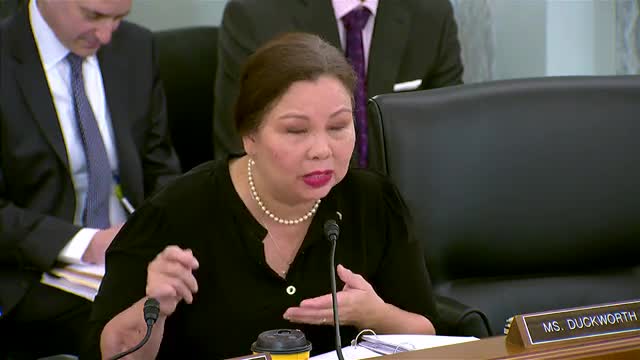FAA Faces Pressure to Address Air Traffic Controller Shortages
November 10, 2023 | Commerce, Science, and Transportation: Senate Committee, Standing Committees - House & Senate, Congressional Hearings Compilation
This article was created by AI summarizing key points discussed. AI makes mistakes, so for full details and context, please refer to the video of the full meeting. Please report any errors so we can fix them. Report an error »

In a recent government meeting, discussions centered on enhancing aviation safety through improved pilot training and addressing air traffic controller staffing shortages. A key proposal, the Experienced Pilots' Safe Lives Act, aims to clarify the training requirements for first officers, emphasizing the need for substantial flight experience before assuming critical roles in commercial aviation. The proposed standards include 900 hours of cross-country flight time, 200 hours of night flight, and specific instrument flight training, underscoring the importance of real-world experience over simulator time.
Concerns were raised about the current practice of substituting simulator training for actual flight hours without clear guidelines, which could lead to a decline in training quality. Industry experts stressed the necessity of defining the types of simulators and training methods used to ensure pilots are adequately prepared for the demands of flying.
The meeting also highlighted the pressing issue of air traffic controller fatigue due to chronic understaffing. With 77% of critical air traffic control facilities reported as understaffed, the impact on safety was a significant concern. Air traffic controllers are facing increased workloads and mandatory overtime, which can lead to fatigue and distraction, potentially compromising airspace safety.
Senators discussed the FAA's hiring goals, noting that while the agency has made strides in recruiting new controllers, the attrition rate and retirements pose ongoing challenges. The FAA anticipates having over 11,000 certified controllers by next year, but the timeline to meet staffing needs remains lengthy.
Additionally, the meeting addressed mental health issues among pilots, with calls for better understanding and support systems. Recent incidents have raised alarms about the mental health challenges faced by pilots, prompting discussions on the adequacy of current drug testing protocols and the need for a comprehensive approach to pilot mental health.
Overall, the meeting underscored the critical need for regulatory clarity in pilot training, adequate staffing for air traffic control, and a proactive approach to mental health in aviation, all aimed at ensuring the highest safety standards in the industry.
Concerns were raised about the current practice of substituting simulator training for actual flight hours without clear guidelines, which could lead to a decline in training quality. Industry experts stressed the necessity of defining the types of simulators and training methods used to ensure pilots are adequately prepared for the demands of flying.
The meeting also highlighted the pressing issue of air traffic controller fatigue due to chronic understaffing. With 77% of critical air traffic control facilities reported as understaffed, the impact on safety was a significant concern. Air traffic controllers are facing increased workloads and mandatory overtime, which can lead to fatigue and distraction, potentially compromising airspace safety.
Senators discussed the FAA's hiring goals, noting that while the agency has made strides in recruiting new controllers, the attrition rate and retirements pose ongoing challenges. The FAA anticipates having over 11,000 certified controllers by next year, but the timeline to meet staffing needs remains lengthy.
Additionally, the meeting addressed mental health issues among pilots, with calls for better understanding and support systems. Recent incidents have raised alarms about the mental health challenges faced by pilots, prompting discussions on the adequacy of current drug testing protocols and the need for a comprehensive approach to pilot mental health.
Overall, the meeting underscored the critical need for regulatory clarity in pilot training, adequate staffing for air traffic control, and a proactive approach to mental health in aviation, all aimed at ensuring the highest safety standards in the industry.
View the Full Meeting & All Its Details
This article offers just a summary. Unlock complete video, transcripts, and insights as a Founder Member.
✓
Watch full, unedited meeting videos
✓
Search every word spoken in unlimited transcripts
✓
AI summaries & real-time alerts (all government levels)
✓
Permanent access to expanding government content
30-day money-back guarantee
